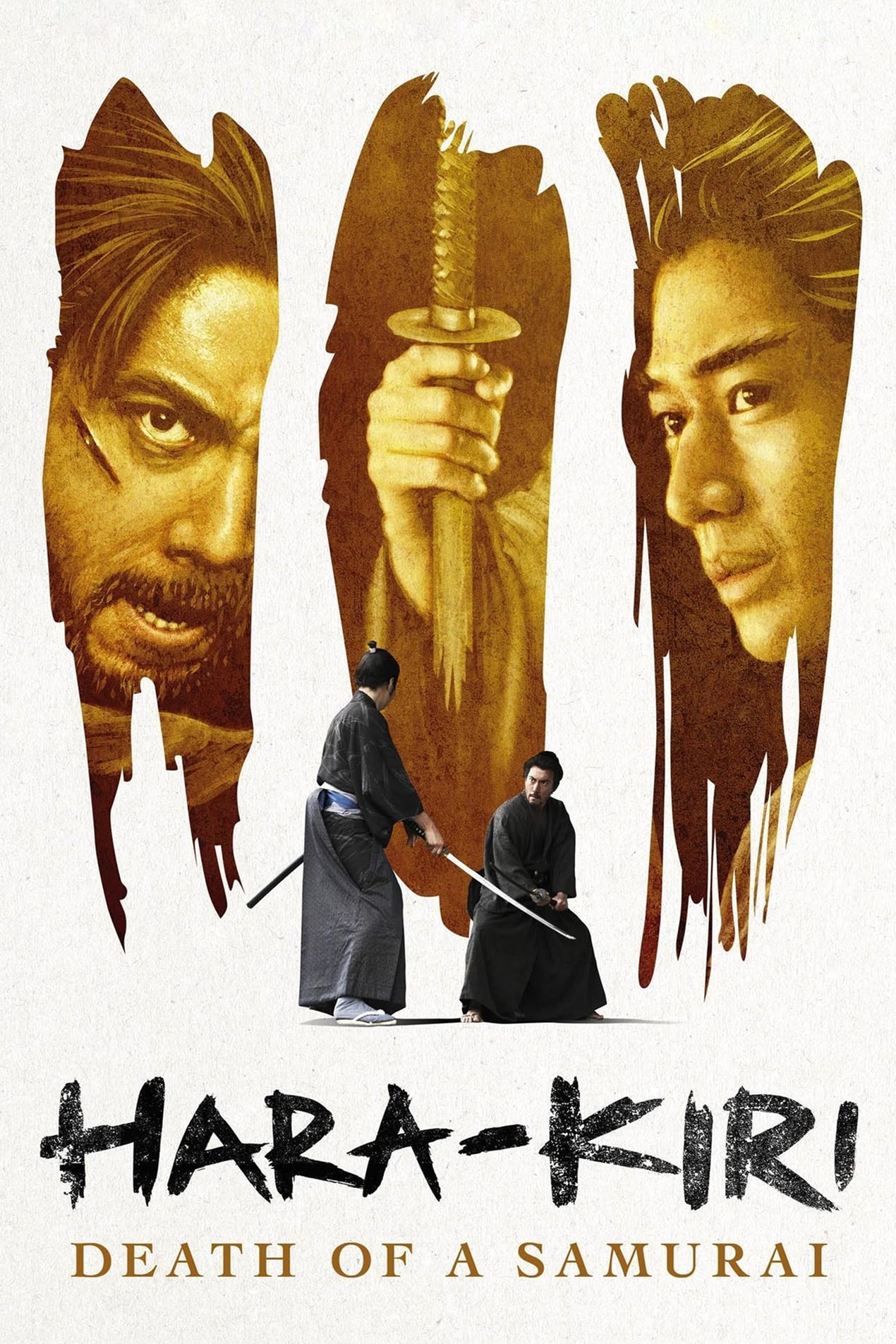
A tale of revenge, honor and disgrace, centering on a poverty-stricken samurai who discovers the fate of his ronin son-in-law, setting in motion a tense showdown of vengeance against the house of a feudal lord.
05 Feb Hara-Kiri: Death of a Samurai (2011)
Bamboozled
What a lesson in filmmaking! More or less the same script, but radically different films. And insofar as viewers want a moral, these work on two different aspects of society.
The original was in the tradition of Ozu: flat, stationary camera and balanced greys. It had little overt symbolism, and the acting style was concentrated in small, almost ritualistic movements of the characters.
When the counsellor shifted in his seat or moved his fan, it mattered. It was more tea ceremony than drama, though the story was tragic. Our hero in the original does take serious revenge and we are left thinking the house of Li is now cursed.
This later film is relatively garish. Gone is the studied flatness and the thing is presented in 3D. There is a wide range of tones, with the happy times being rosy and the dark times darker than Kobayashi would dare go. There’s too much portent, too much explicit showing compared to the former.
Why this matters. The story is about stories. The main story is what is told to us, the inner story what is told to the assembled household. Both concern the story that each of the strutting, comfortable retinue tell themselves about who they are. That’s a lot of telling and the three have to mesh so that the inner story demolishes the outer one.
Miike has restructured things. The second samurai appears first here. The boss is repelled enough to intercede in the shameful forced suicide. The revenge at the end is with a bamboo sword, that appears to do little damage. In the original, the assembled swordsmen are so intimidated that guns have to be called in.
Everything is more explicit. In the original, for instance, we only know that the three shamed officials will kill themselves. Their shame is increased by us not witnessing what we assume is ordered (at least in two cases). That greatly underscores the shame on the house, and we hear the counsellor trying to fabricate a story that is not dishonourable, and that we know won‘t hold. This one ends with the master returning with no consequence.
One thing that mattered to me in the new one: we learn that the two clans were allies and that the wealth of the rich clan was partly won by the effort of the disbanded clan. I have great respect for Japanese films. I thought Audition was fantastic and some of the recent stuff is fascinating. But this seems to have too much Rosemary‘s Baby in it for me.
And little understanding of how one story can pull on another.
Posted in 2015
Ted’s Evaluation — 2 of 3: Has some interesting elements.


No Comments